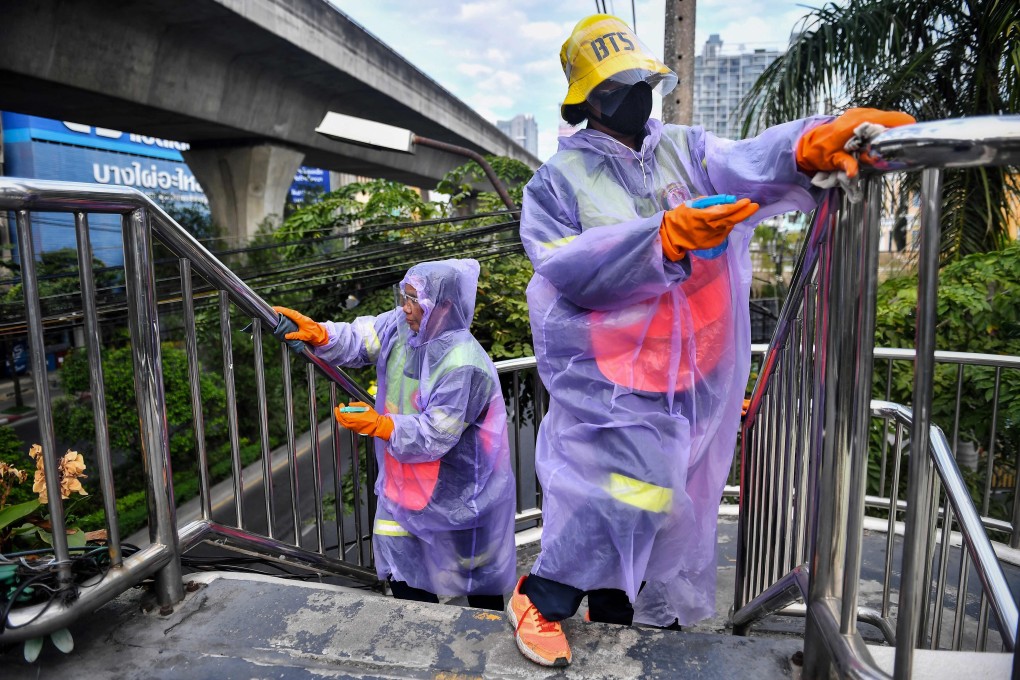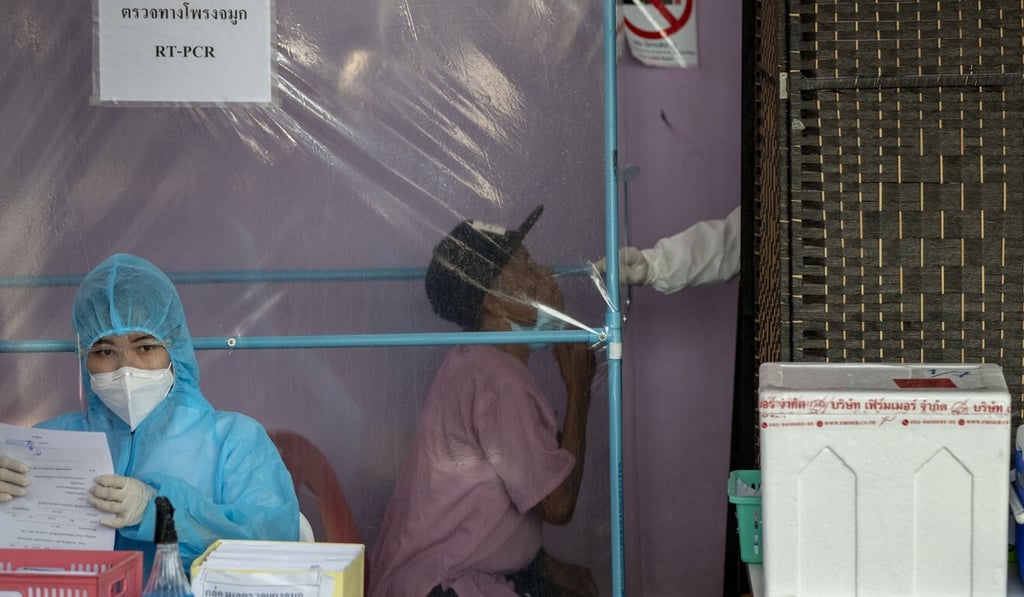Coronavirus: Thailand scrambles to contain outbreak; Japan to declare emergency in Tokyo
- A new outbreak threatens to put Thailand back months in its pandemic battle amid fears daily cases could rise to more than 10,000 by later this month
- Japan will declare a month-long emergency in Tokyo and surrounding areas from Saturday as the country’s daily cases topped 6,000 for the first time

The country closed its borders and enforced mandatory quarantines for its own citizens, as well as the handful of foreigners allowed to visit. But aside from a few outward signs of the “new normal”, like the ubiquitous wearing of masks and reminders to practice social distancing, life resumed as though the pandemic had largely run its course.
But a new outbreak discovered in mid-December threatens to put the country back where it was in the toughest days of early 2020, when it tallied 3,045 cases and 59 deaths. Thailand’s Covid-19 coordinating centre has warned that the number of new daily cases could rise to more than 10,000 by later this month under a worst-case scenario if the government does not do more to curtail the virus’s spread.

The outbreak, first identified in a seafood market that employs thousands of Myanmar migrant workers, has now spread to 56 of Thailand’s 77 provinces with the country reporting an all-time high of 745 new cases on Monday. Wednesday’s tally of 365 new infections and one death bring its total to 9,331 cases and 66 fatalities so far.
Complicating its path to recovery, Thailand is playing catch-up in its bid to secure vaccines. Despite being a production hub for the Oxford-AstraZeneca vaccine, the government has yet to secure enough doses to cover its population of nearly 70 million people.